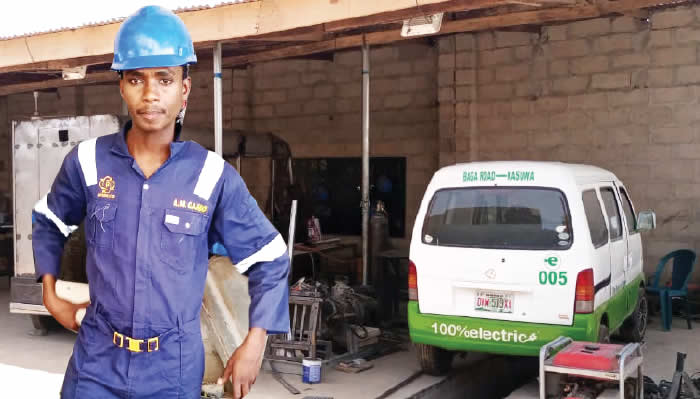 Nigerian entrepreneur Mustapha Gajibo has been creating electric, rather than petrol, autos in his workshop. However, he’s now going a step further and is planning to build solar-powered buses from scratch in order to perpetuate clear power and curb air pollution.
Nigerian entrepreneur Mustapha Gajibo has been creating electric, rather than petrol, autos in his workshop. However, he’s now going a step further and is planning to build solar-powered buses from scratch in order to perpetuate clear power and curb air pollution.
Africa’s high oil production and exports, combined with a recent history of cheap gasoline and limited access to electric power, discourage people from investing in electric cars.
Gajibo, a 30-year-old college drop-out and resident of Maiduguri metropolis in Nigeria’s northeast, is undaunted. He says rising international oil costs and air pollution make electrical vehicles worthwhile in Nigeria. At his workshop, he has already stripped combustion engines from 10 mini-buses, powering them with solar batteries. The buses, which have been in use for just over a month, cover 100 km on a single charge, he said. His boldest mission is building the buses from scratch. They will be equipped with solar panels and batteries.
As I chat with you now at our workshop, we’re constructing a 12-seat bus that may cover up to 200 kilometers on one charge, Gajibo said.
“We’ll unveil this bus at the end of this month, and this will be the first one in Nigeria,” he said. He continued to explain that his workshop can produce 15 buses per month.
Automobiles powered by electricity have not been embraced in Nigeria yet because they are more expensive, and there is not enough electricity to charge them. For now, Gajibo has one charging station powered by the sun. There are other hurdles like currency shortages that make it difficult to import parts. So far, he’s found success in Nigeria.
At the moment, Gajibo has one charging station which relies on photo voltaic power. There are different barriers in place like overseas forex shortages which make it difficult to import parts. That’s why we’re looking for a way of supplying them in Nigeria.
“With sales declining, we’ve been substituting some of our supplies with substitutes to drive prices down and maximize revenue,” Gajibo admitted.

